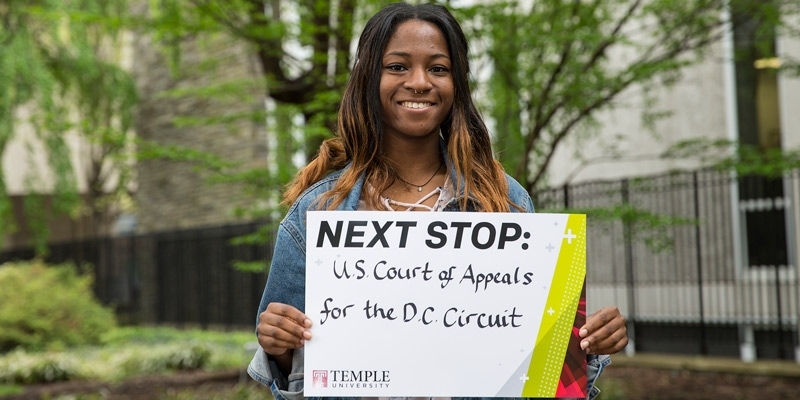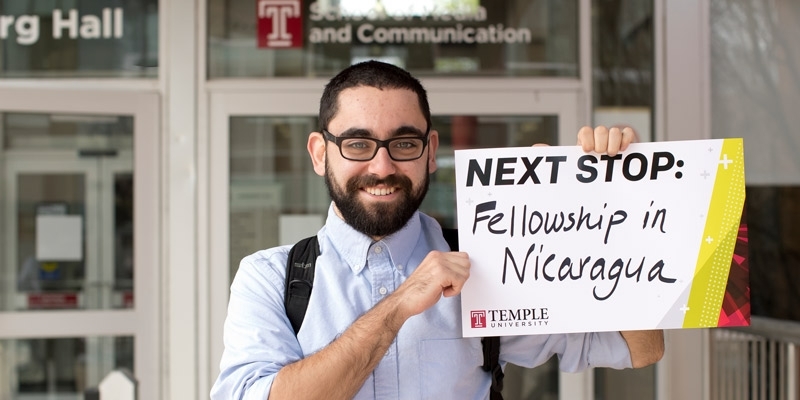Highest education
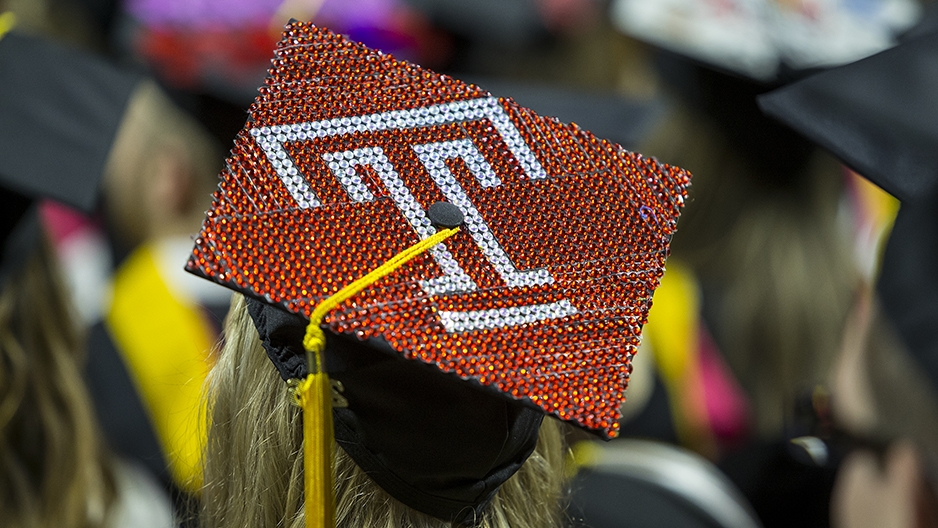
As graduation season approaches and attention turns to the accomplishment of earning a college degree, Temple’s soon-to-be alumni and their families are rightfully planning to celebrate the determination it takes to get to Commencement.
Imagine doing that five times.
Among Temple’s more than 317,000 alumni worldwide, earning five degrees from Temple is a distinction held, according to university records, by only four people: Shuaibu Awodi, Gerard Brennan, Arthur Bugay and Warren Youells. Believe it or not, their small club could grow: 86 alumni have earned four degrees from Temple.
In interviews, Brennan, Bugay and Youells reflected on what attracted them to Temple, how they applied their knowledge and, in an understated way common to all three of them, how they managed to push their higher education so high. (Attempts to reach Awodi, EDU ’79, EDU ’81, EDU ’84, CLA ’85, CST ’88, were unsuccessful).
Said Brennan: “I kept the Temple motto in mind. I can’t say it [perseverantia vincit] in Latin, but I know in English it means ‘perseverance conquers.’ I kept that in mind as I tried to get through all of my programs.”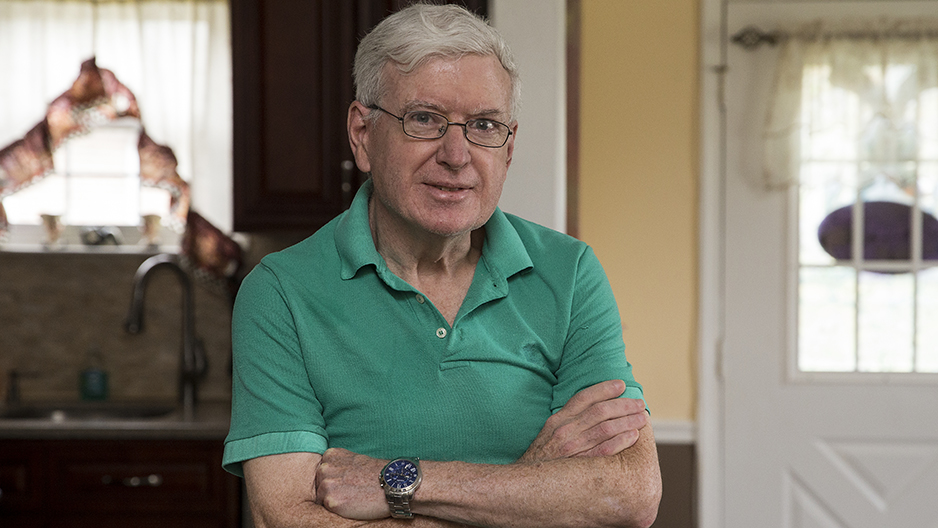
Gerard P. Brennan, CLA ’78, CLA ’86, FOX ’89, FOX ’93, LAW ’98
A native of the Lawndale section of Northeast Philadelphia, Gerard Brennan chose Temple after driving past it with his parents as they took one of his sisters to the nearby St. Joseph’s Hospital School of Nursing after weekend visits home. He thought Temple looked nice, and the university offered degrees in a wide variety of subjects.
He concentrated in philosophy and jurisprudence as an undergraduate and doctoral student, attracted to the department by several distinguished scholars (including his dissertation advisor, the late Elizabeth Lane Beardsley, and her husband, Monroe Beardsley) and well-known journals, such as the Journal of the History of Ideas. His dissertation argued for the insanity defense, a timely topic in the years after John Hinckley Jr.’s assassination attempt of President Ronald Reagan.
Toward the end of his PhD program, Brennan only needed to take three credits for dissertation research although he was entitled to 15. Instead of letting the other 12 credits go to waste, he pursued a master’s degree in human resource management, finishing it while working for his father’s landscaping firm and teaching philosophy part-time at local universities.
Upon joining the federal government as a contracting officer at the Defense Logistics Agency in Northeast Philadelphia, Brennan sought an MBA. He also attained four professional certifications in contract and purchasing management from national associations. From there, he pursued his law degree at night while still working for the federal government full-time and continuing to teach philosophy. He later applied his law degree by working Fridays as a part-time attorney, mostly conducting research, at a law firm in Camden, New Jersey.
Now retired, Brennan said Temple’s accreditations in business and law were part of what kept him coming back, in addition to tuition remission from his employers, the familiarity of the university and—no shock here—the food trucks on campus.
“There aren’t many majors that Temple doesn’t offer a degree program in,” he said. “I was used to it, I knew where things were, and I thought, ‘Why go elsewhere when I have what I need here?’”
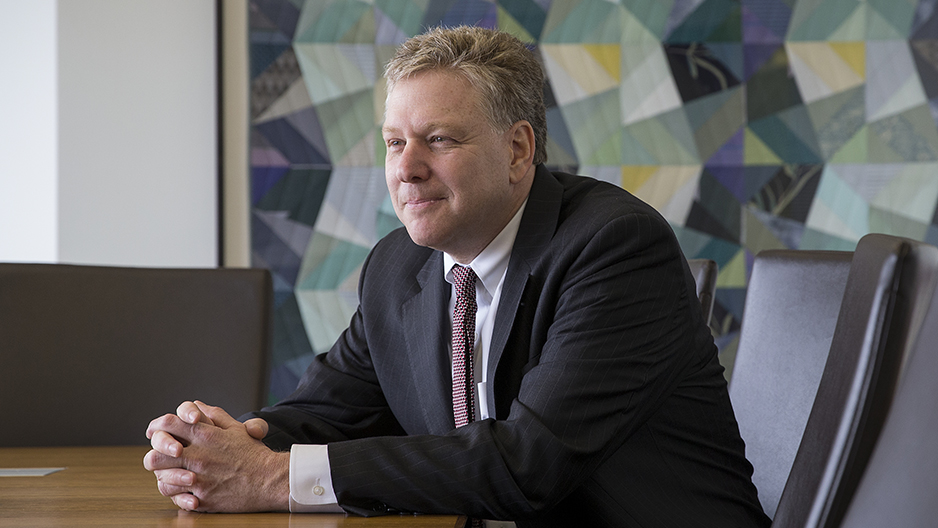
Arthur L. Bugay, CLA ’86, CLA ’88, LAW ’91, LAW ’98, LAW ’00
A partner at the Center City law firm Galfand Berger, Arthur Bugay jokes that his parents gave him a choice of where to attend college: Temple. It was close (his family’s roots are in Wyndmoor, Montgomery County), convenient, and his sister had gone to Temple a few years before him.
There are two primary themes throughout Bugay’s Temple experiences. The first is fantastic professors, whose names he can recite like a roll call: Robert Edenbaum and Peter Tasch (English); Erwin Blackstone, Mike Leeds and Bill Stull of economics (Bugay’s concentration for his bachelor’s and master’s degree); and JoAnne Epps, Edward Ohlbaum and David Sonenshein at Temple Law, among many others.
His professors “all had different styles, but the commonality of all of them is they loved what they did and truly enjoyed their students; and they were challenging,” Bugay said. “The classes were engaging; everyone participated. It was individualized, interactive and thought-provoking. It raised me up to think more broadly.”
The second theme: Temple was affordable, familiar, and he could take classes at night. He earned his JD (by day) and two masters of law—in taxation and trial advocacy—from the Beasley School of Law (at night). He stayed at Temple because he could work through school and because “It takes a lot for me to switch horses.”
Professionally, Bugay specializes in litigation and regularly draws from his liberal arts education when writing legal briefs or presenting arguments in court.
“It comes in handy as a lawyer since the job requires you to ask questions and make speeches,” said Bugay, who served as president of Omicron Delta Epsilon, an international economics honors society. “Temple taught me how to organize my thoughts and put things together.”
The latest degree earned by a Bugay? His daughter, Jacqueline, graduated from the Fox School of Business last May.
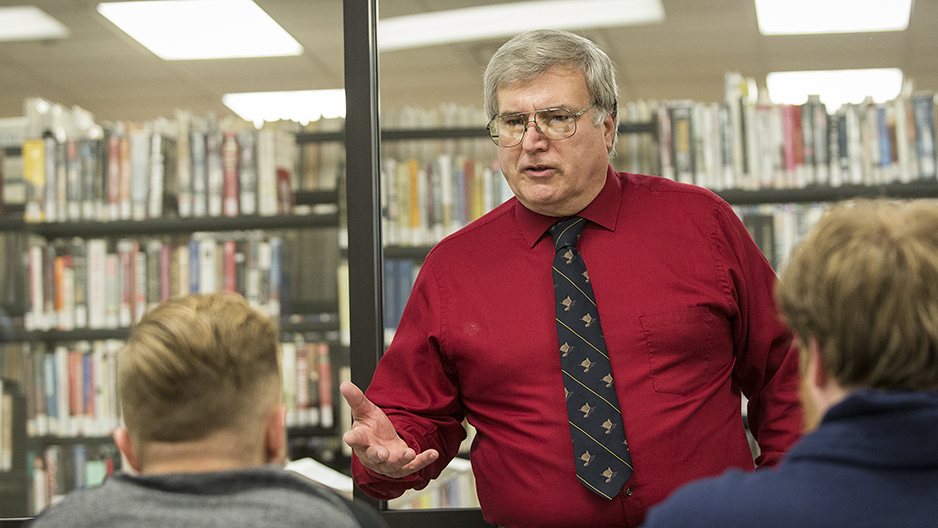
Warren R. Youells, EDU ’78, EDU ’82, CLA ’84, EDU ’92, CLA ’04
If you’re impressed that Warren Youells has five degrees from Temple, in four consecutive decades, you should also know he’s earned three associate’s degrees from Montgomery County Community College, his most recent (2014) in liberal studies. His simple explanation: “Got to keep myself fresh.”
From sixth grade on, Youells, born in Sellersville, Pennsylvania, and a 1974 graduate of Souderton Area High School, set his sights on becoming a teacher. His first degree was an associate’s in elementary education in 1976, followed by a bachelor’s from Temple two years later in the same discipline. It was a tough time to enter the field (local schools were closing), so Youells supplemented substitute-teaching assignments with driving school buses.
He returned to Temple for his first master’s degree so he could also be certified to teach secondary education, specializing in social studies. Two years later, in 1984, he earned his second master’s, this one in history, his favorite subject. Working as a graduate assistant alongside the late history professor Norman J. Kaner—whom Youells called a model of tolerance and inclusion—was Youells’s fondest Temple memory.
After continuing to substitute teach and drive a school bus, Youells finally landed a full-time teaching position in 1986 at a middle school in Baltimore, the city where he met his wife, Sue, KLN ’05. They’ve been married 30 years.
In the early 1990s, he spent four years in Martinsburg, West Virginia, teaching children with special needs and earning his third master’s, in special education, from Temple along the way. Tired of driving back and forth from Telford, Pennsylvania, on weekends to see his wife, and upon the birth of his son, Kerion, in July 1994, Youells resolved to come home.
He landed at Montgomery County Community College in 1995 as a history instructor and has been there since, balancing the classes he teaches there with teaching assignments elsewhere—community colleges in Bucks and Delaware counties in Pennsylvania and Cecil County in Maryland—and driving school bus. He’s driven for North Penn School District since 2006.
His two master’s degrees in education, Youells said, taught him how to teach. His master’s degrees in history and literature taught him what to teach.
“If you want to, you can do it. You have to apply yourself,” he said of higher education, adding later, “I survived. Maybe you can too.”
